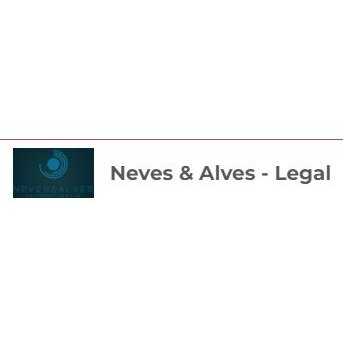Best Retirement Visa Lawyers in Porto
Share your needs with us, get contacted by law firms.
Free. Takes 2 min.
List of the best lawyers in Porto, Portugal
About Retirement Visa Law in Porto, Portugal
A retirement visa in Porto, Portugal, officially known as the D7 Visa, is designed to attract non-EU citizens who wish to reside in Portugal during their retirement years. This visa is particularly favorable to those who have a reasonable passive income, such as pensions or social security benefits, sufficient to financially support themselves during their stay. Obtaining a retirement visa allows individuals to enjoy Portugal's temperate climate, rich culture, and high quality of life, making it an attractive destination for retirees worldwide.
Why You May Need a Lawyer
Navigating the retirement visa process in Portugal can be complicated due to language barriers and the complexity of legal requirements. Here are some common scenarios where legal assistance may be beneficial:
- Understanding Eligibility: A lawyer can clarify specific eligibility requirements and evaluate whether your income and documentation meet the necessary thresholds.
- Document Preparation: Ensuring all documents are correctly prepared and translated into Portuguese can be challenging without legal support.
- Application Submission: Lawyers can guide you through the entire application process, including filling out forms, submitting documents, and handling any issues that arise.
- Appeals and Rejections: In the event of a visa denial, legal experts can assist with the appeals process or guide you to better re-apply to increase your chances of success.
Local Laws Overview
Portuguese immigration laws regulate the retirement visa process, with several key aspects to consider:
- Income Requirements: Applicants must demonstrate sufficient passive income. The amount is typically based on the Portuguese minimum wage, with a percentage required for additional dependents.
- Residency Requirements: Once the visa is granted, there is an obligation to spend at least six consecutive or eight non-consecutive months in Portugal to maintain residency.
- Renewals and Permanent Residency: The initial visa is usually issued for one year and can be renewed. After five years, residents may apply for permanent residency or citizenship.
- Healthcare and Insurance: Applicants need to demonstrate they have access to Portuguese public healthcare or possess private health insurance.
Frequently Asked Questions
What is a D7 Visa, and who is eligible?
The D7 Visa is a type of residence visa for retirees and non-EU citizens with a passive income. Eligibility is based on proving a stable income source above Portuguese minimum income levels.
How long does the visa process take?
The processing time varies, but it typically takes a few months from the time of application submission to receiving a decision.
What kind of proof of income is required?
Applicants typically must provide tax returns, bank statements, or other financial documents showing consistent income from pensions or similar sources.
Do I need a criminal background check?
Yes, a clean criminal record is usually required, with documentation from your home country proving no prior convictions.
Can I bring family members with me?
Yes, family reunification is possible, allowing you to bring spouses, children, and sometimes extended family members under certain conditions.
Is legal advice necessary for the application process?
While not mandatory, legal advice is recommended to navigate the complex process, ensure document compliance, and increase approval chances.
Are there age restrictions for applying?
There are no specific age restrictions, though the visa targets retirees, making it essential to demonstrate financial self-sufficiency without employment.
What happens if my visa application is rejected?
If rejected, there are options to appeal or re-apply. Legal assistance can be vital in understanding the rejection rationale and correcting issues.
Can I work in Portugal with a retirement visa?
The D7 Visa is primarily for passive income recipients, but it does not strictly prohibit employment. Consult a professional to understand any restrictions.
What are my tax obligations in Portugal?
Living in Portugal can mean becoming a tax resident, subject to Portuguese tax laws. The Non-Habitual Residency regime offers potential tax benefits worth exploring with legal and tax experts.
Additional Resources
For further assistance with retirement visas in Porto, consider contacting the following resources:
- Serviço de Estrangeiros e Fronteiras (SEF): The Portuguese Immigration and Borders Service provides official information and application processing.
- Portuguese Consulate: Your local Portuguese consulate can offer guidance on visa applications and documentation.
- Legal Associations: Local legal associations can provide contacts for lawyers specializing in immigration law.
Next Steps
If you find yourself needing legal assistance for a retirement visa in Porto, consider these steps:
- Research: Begin by researching law firms and legal specialists in Porto with a strong background in immigration law.
- Consultation: Arrange consultations to discuss your specific circumstances and evaluate the legal support required.
- Prepare Documentation: Gather all necessary documentation and seek legal advice on any specific requirements.
- Engage Legal Services: Once you select a lawyer, engage their services to guide you through the application process.
Ensuring you have expert legal guidance can greatly enhance your chances of a successful application and smooth transition to life in Portugal.
Lawzana helps you find the best lawyers and law firms in Porto through a curated and pre-screened list of qualified legal professionals. Our platform offers rankings and detailed profiles of attorneys and law firms, allowing you to compare based on practice areas, including Retirement Visa, experience, and client feedback.
Each profile includes a description of the firm's areas of practice, client reviews, team members and partners, year of establishment, spoken languages, office locations, contact information, social media presence, and any published articles or resources. Most firms on our platform speak English and are experienced in both local and international legal matters.
Get a quote from top-rated law firms in Porto, Portugal — quickly, securely, and without unnecessary hassle.
Disclaimer:
The information provided on this page is for general informational purposes only and does not constitute legal advice. While we strive to ensure the accuracy and relevance of the content, legal information may change over time, and interpretations of the law can vary. You should always consult with a qualified legal professional for advice specific to your situation.
We disclaim all liability for actions taken or not taken based on the content of this page. If you believe any information is incorrect or outdated, please contact us, and we will review and update it where appropriate.















